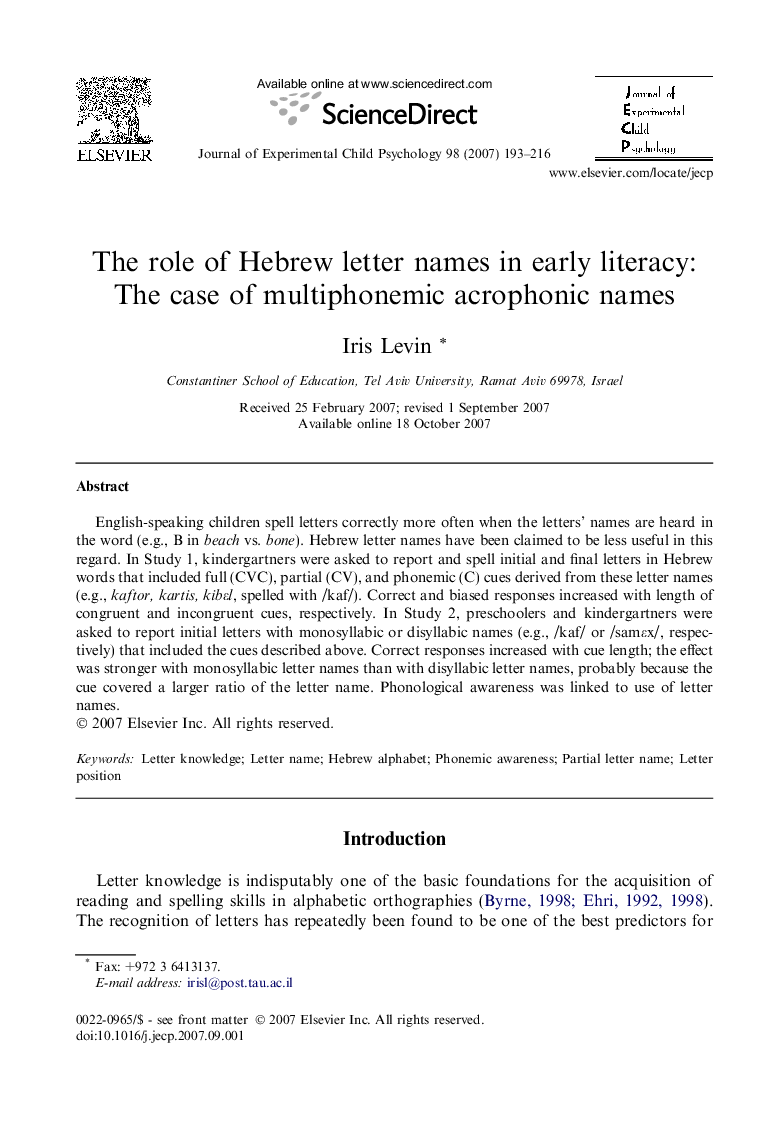| Article ID | Journal | Published Year | Pages | File Type |
|---|---|---|---|---|
| 918788 | Journal of Experimental Child Psychology | 2007 | 24 Pages |
English-speaking children spell letters correctly more often when the letters’ names are heard in the word (e.g., B in beach vs. bone). Hebrew letter names have been claimed to be less useful in this regard. In Study 1, kindergartners were asked to report and spell initial and final letters in Hebrew words that included full (CVC), partial (CV), and phonemic (C) cues derived from these letter names (e.g., kaftor, kartis, kibεl, spelled with /kaf/). Correct and biased responses increased with length of congruent and incongruent cues, respectively. In Study 2, preschoolers and kindergartners were asked to report initial letters with monosyllabic or disyllabic names (e.g., /kaf/ or /samεx/, respectively) that included the cues described above. Correct responses increased with cue length; the effect was stronger with monosyllabic letter names than with disyllabic letter names, probably because the cue covered a larger ratio of the letter name. Phonological awareness was linked to use of letter names.
